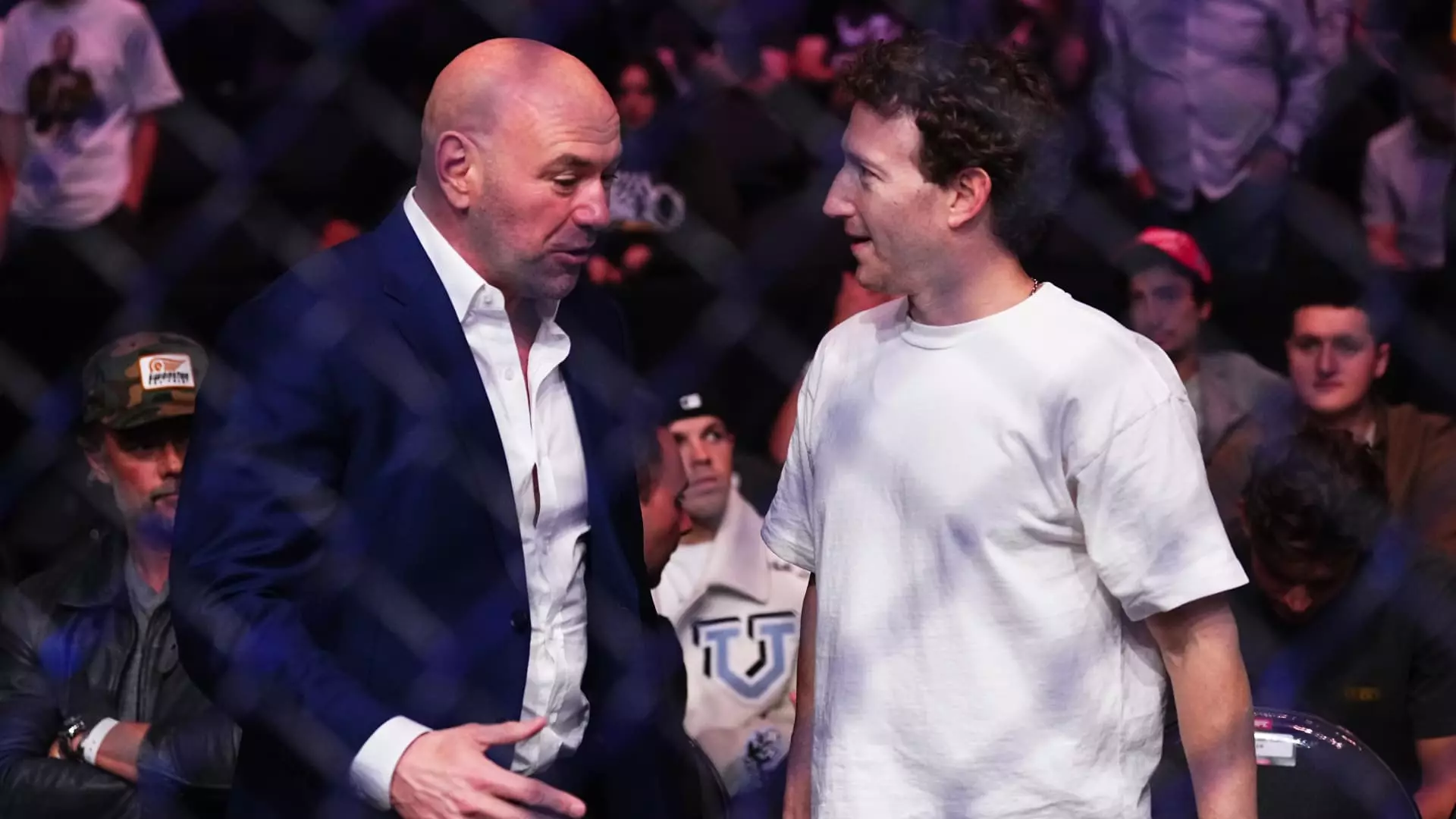7 Reasons Why UFC’s Alliance with Meta is a Game-Changer for Sports Fans

In an ambitious move that has sent ripples through the world of sports marketing, UFC has announced a multimillion-dollar partnership with Meta. As the official fan technology partner, Meta will integrate its various platforms—including AI tools, smart glasses, and social media channels like Facebook and Instagram—into the fabric of the UFC experience. This collaboration represents more than just a financial commitment; it signals a transformative approach to how fans engage with UFC and mixed martial arts as a whole.
With UFC’s president, Dana White, emphasizing that fans will be “blown away” by what’s to come, there seems to be a palpable excitement that is difficult to ignore. However, as we examine the implications of this deal, skepticism is warranted. The potential for increased commercialization could overshadow the integrity of the sport itself, leaving authentic fan engagement at risk.
The Corporate Overhaul of a Traditional Sport
UFC’s embrace of Meta’s technological concepts erases traditional boundaries in the sporting world. This monetization of sports fan culture has its pros and cons. On one hand, the introduction of AI-enhanced experiences and potentially immersive content can deepen fan engagement. On the other hand, it raises alarming questions about the commercialization of sports and whether the UFC’s core identity will be compromised.
Fan experience should be about community, passion, and competition—not merely a conduit for algorithm-driven marketing strategies. UFC’s alignment with Meta raises eyebrows regarding how much influence big tech should have in shaping the experience and culture of sports. When the primary aim is to maximize profits, what happens to authenticity and genuine interaction?
The Risky Business of Celebrity Culture
The high-profile nature of this partnership comes laden with the baggage of celebrity culture, particularly in the context of its leaders. Zuckerberg’s history of controversial statements and business practices puts additional scrutiny on this collaboration. It’s worth pondering whether this partnership is nothing more than a flashy attempt by Meta to clean up its tainted public image by aligning itself with a thrilling sport like UFC.
Additionally, the optics of having Zuckerberg, a symbol of Silicon Valley’s tech elitism, at the helm of sports innovation might alienate some hardcore MMA fans. Zuckerberg has previously engaged with mixed martial arts, even expressing his views on the necessity of “masculine energy” in corporate culture, which makes his involvement even more complex and loaded.
The narratives surrounding UFC events could soon become more about Meta and Zuckerberg than the athletes and competitions themselves. Such distractions could detract from the fighters’ stories, their hard-earned victories, and the raw excitement of the matches that fans cherish deeply.
AI: A Blessing or a Curse?
A particularly interesting aspect of this partnership is UFC’s commitment to leverage Meta’s AI technologies for a revamped fighter ranking system. While the idea of employing advanced algorithms to offer more accurate assessments might intrigue some tech-savvy fans, it inherently risks creating an impersonal experience. In a sport built on human grit and emotional connections, how much room is there for machine-made decisions in ranking and recognition?
The push toward AI in sports is undoubtedly forward-thinking; however, it raises significant questions regarding the humanity of the sport. Will the heart and soul of the fighters be diminished to sets of data points analyzed by an algorithm? The need for balance between tradition and modernization is paramount, lest the fan experience devolve into a series of sterile statistics.
Where Does This Leave Long-Term Partnerships?
Interestingly, this deal comes at a time when UFC’s negotiations with its current broadcast partner, ESPN, are in flux. UFC’s clear pivot towards technology as a cornerstone of its brand identity raises questions about the future of media rights deals. Will the partnership with Meta incentivize a shift away from conventional media, or will fans still prioritize traditional viewing experiences alongside enhanced digital interactions?
As sports continuously evolve in the digital age, the UFC aims to be at the forefront. However, the nuances of this partnership with Meta bring to light the delicate balance between innovation and ensuring the emotional core of the sport remains intact. The trajectory of this deal could fundamentally reshape not just how UFC markets itself, but how sports organizations navigate the intersection of technology and athletic culture.





